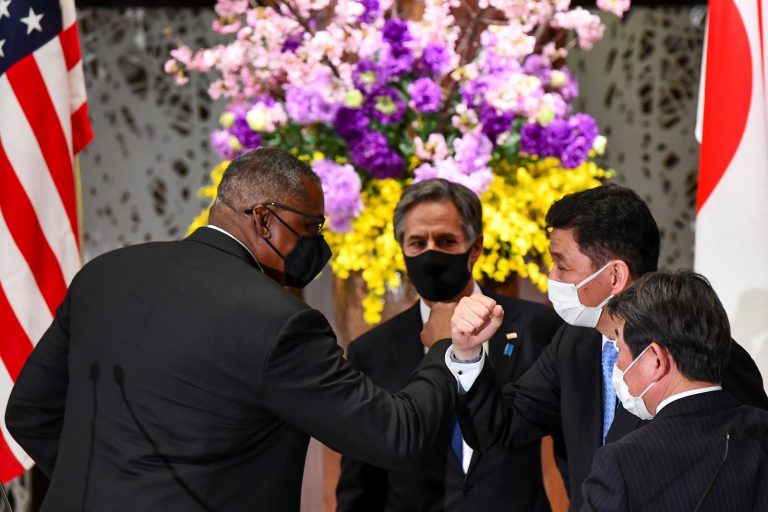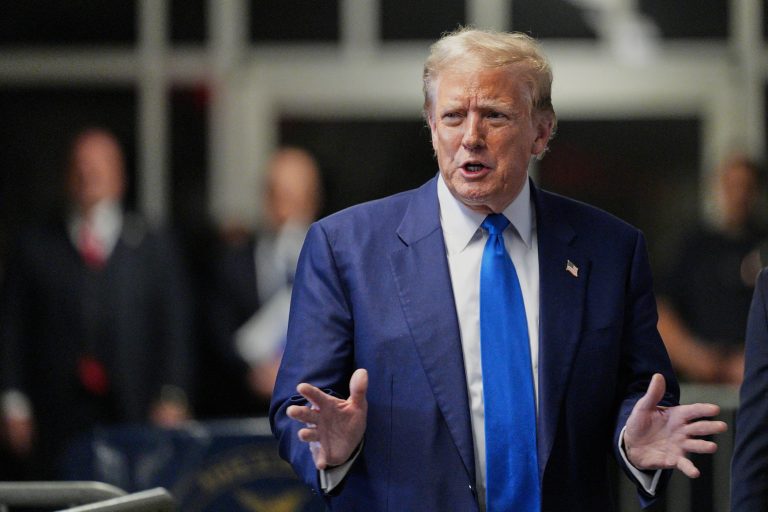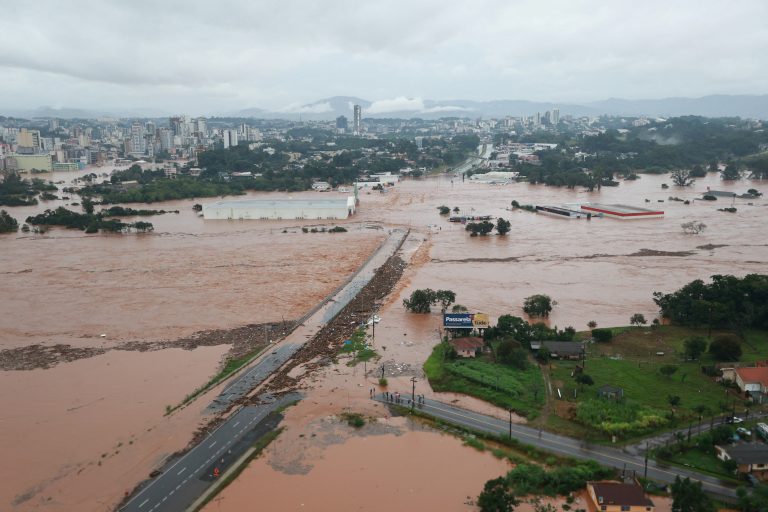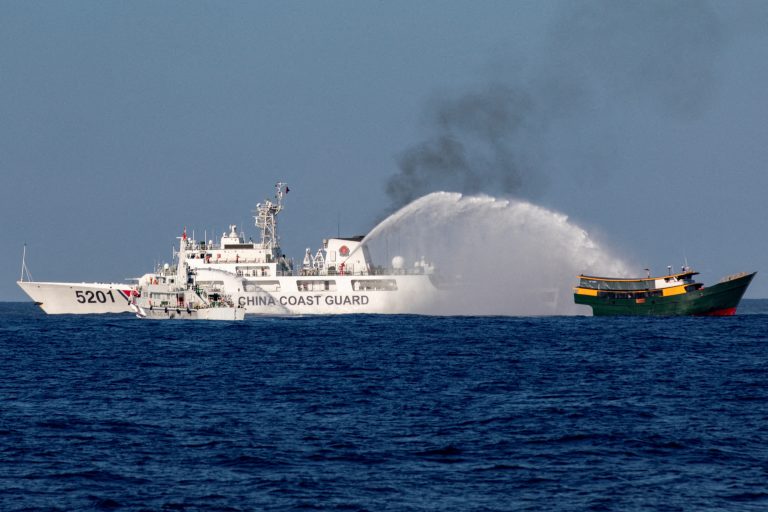The U.S. and Japan have pledged to prevent military aggression by Communist China towards Taiwan, the democratically governed island Beijing sees as a rightful part of its territory.
U.S. Defense Secretary Lloyd Austin brought up the issue when he held talks with Japanese Defense Minister Nobuo Kishi, according to Japanese reports on March 21. Kishi called for peace in the Taiwan strait but agreed to help protect Taiwan and U.S. warships in the area.
Japan is constitutionally prohibited from deploying its military overseas in a combat role, something the ruling Liberal Democratic Party seeks to change. In the 2000s, Japanese forces were sent to Iraq to help in support assignments.
U.S. Secretary of State Antony Blinken had said on March 3 that “our relationship with China will be competitive when it should be, collaborative when it can be, and adversarial when it must be.” He also spoke of the need to “engage China from a position of strength,” which “requires working with allies and partners.”
Support for Taiwan ‘rock-solid’
The Biden administration seems to be continuing the trend that emerged under preceding president Donald Trump, when the U.S. made a greater priority of confronting Beijing on Taiwan — which is officially known as the Republic of China and maintains a distinct government from the communist regime on the mainland.
Success
You are now signed up for our newsletter
Success
Check your email to complete sign up
A State Department spokesperson told The Hill that the Biden administration “continues to express our strong concerns to Beijing regarding the troubling pattern of ongoing PRC attempts to intimidate its neighbors in the region, including Taiwan.”
The unnamed spokesperson also said that Biden administration support for Taiwan is “rock-solid.” They added that “we will stand with friends and allies to advance our shared prosperity, security, and values and a free and open Indo-Pacific region — and that includes deepening our unofficial ties with democratic Taiwan.”
On March 7, Chinese foreign minister Wang Yi said, “the Chinese government has no room for compromise.” “We urge the new U.S. administration to fully understand the high sensitivity of the Taiwan issue” and “completely change the previous administration’s dangerous practices of ‘crossing the line’ and ‘playing with fire.’”
Tokyo has urged the U.S. to take a tougher stance on China. In particular, Kishi expressed his “strong concern over the increased activities of the China Coastguard recently and their stronger partnership with [Beijing’s] military forces.”

The mainland Chinese Coast Guard Law, implemented Feb. 1, allows the maritime force open fire on foreign ships in the waters claimed by the People’s Republic of China (PRC). This includes territory administered by Japan and the waters around Taiwan.
“We must not allow the Coast Guard law to undermine the legitimate interests of relevant nations including Japan,” Kishi stated.
Earlier in March, the U.S. and Japan had agreed to joint military drills in the East China Sea following an increase of incursions by the Chinese navy into Japanese waters around the disputed Senkaku islands.
The Chinese Communist Party (CCP) has never ruled Taiwan, but it maintains that the island must be “reunified” with the PRC, by force if necessary.
“The Chinese mainland has always made its position and bottom line clear both politically and diplomatically,” Beijing-based naval expert Li Jie wrote in an editorial published by the Communist Party-run Global Times.
“It will never allow any other country to interfere in [the] Taiwan question. If anyone wants to intervene, China will not hesitate to utilize all troops and arms. We will be ready to use all means, including force, to achieve reunification,” Li wrote.
Follow us on Twitter or subscribe to our email list















